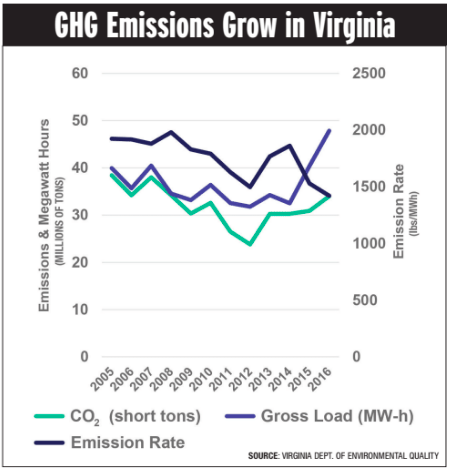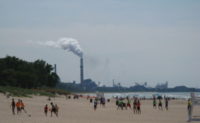With the federal government now taking a back seat on climate change, states and cities are accelerating their own initiatives to control greenhouse-gas emissions through carbon dioxide (CO2) cap-and-trade programs and carbon-use taxes.
Sean Penrith, executive director of The Climate Trust, terms the 2017 momentum “extraordinary” and predicts a quickened pace this year, even though some measures face hurdles.
The Washington state Senate on Feb. 1 moved forward a bill that would impose a carbon pollution tax on the sale or use of fossil fuels to generate power and the electricity from those fuels.
Gov. Jay Inslee (D) has long favored a clean-energy economy, but federal cap-and-trade legislation he supported as a U.S. congressman failed and his executive order setting an emissions cap was struck down in December by a state superior court judge.
Voters rejected a 2016 ballot measure for the nation’s first carbon-emission tax on fossil fuels and fossil-fuel-generated power, with proceeds to have offset sales taxes.
In a recent tweet, Inslee said today's level of engagement from legislators, business and community leaders is “unprecedented.”
Clean Economy
Democrats have a legislative majority, but their slight leads indicate uncertainty in the bill’s passage, says Jeff Johnson, president of the Washington State Labor Council. He says the group supports a tax on carbon, with revenue earmarked to create a clean-energy economy and aid the transition of fossil-fuel workers, but he acknowledges it has not yet endorsed the state bills.
 The legislation would exempt certain manufacturing sectors from the carbon tax, such as aluminum, cement, and pulp and paper.
The legislation would exempt certain manufacturing sectors from the carbon tax, such as aluminum, cement, and pulp and paper.
“What’s required is for them to continue to invest in technologies that will lower energy use over time,” says Johnson. If enacted, it would make available $1.5 billion a year for investments, including infrastructure.
Washington has joined eight states to form the Carbon Costs Coalition, focused on cutting CO2 emissions with market-based solutions such as carbon pricing. “State legislators … know they can’t wait for the federal government,” says Jeff Mauk, executive director of the National Caucus of Environmental Legislators.
State Pact Grows
New Jersey Gov. Phil Murphy (D), installed in office last month, ordered the state to rejoin the 10-state Regional Greenhouse Gas Initiative, a market-based compact to reduce emissions and fund clean-energy projects.
His predecessor, former Gov. Chris Christie (R), withdrew in 2011.
Murphy also dropped Christie’s lawsuit against the federal Clean Power Plan, allowing the state to join litigation against the Trump administration’s repeal of the plan, says Jeff Tittel, director of the state Sierra Club.
Also, bills now in the New Jersey senate and general assembly would require the state to be an initiative member, essentially blocking a future withdrawal from the GHG compact, Tittel says.
Connecticut, Delaware, Maine, Maryland, Massachusetts, New Hampshire, New York, Rhode Island and Vermont are the other members. Under Christie, New Jersey missed out on at least $100 million of initiative funds it could have raised, says Tittel. Through the compact, emission allowances are sold at auction, with proceeds invested in clean-energy programs.
New Push
In Virginia, party-line votes in both legislative houses tabled bills for CO2 cap-and-trade programs.
The state still could link with the compact under regulations being finalized by newly elected Gov. Ralph Northam (D). Carbon emissions would be capped and traded in the compact, with utilities set to receive the allowances.
“Until legislative action is taken, this will force the state to miss out on up to $200 million a year in revenue,” says Harrison Wallace, a policy coordinator at the Chesapeake Climate Action Network.
California—a member of the Western Climate Initiative, which includes three Canadian provinces—on Jan. 29 awarded the cities of Fresno, Ontario and Los Angeles’ Watts section a total of $140 million in grants to support community-led infrastructure projects to combat climate change.
The grants will fund 45 projects set to reduce 117,412 metric tons of GHG emissions. “The level of community engagement and the quality of the proposals in all three cities is inspiring,” says Ken Alex, director of planning and research for Gov. Jerry Brown (D).






Post a comment to this article
Report Abusive Comment